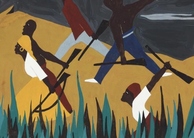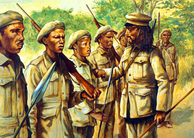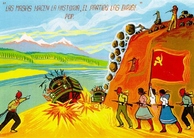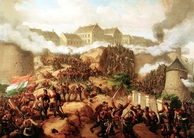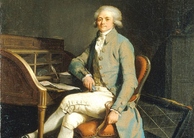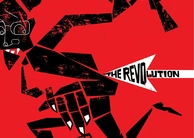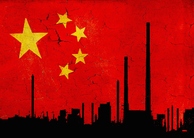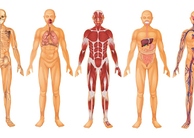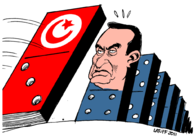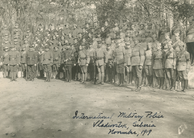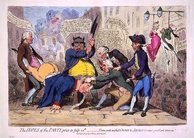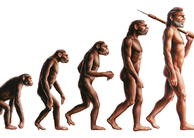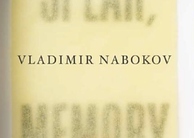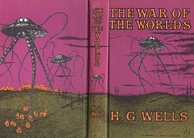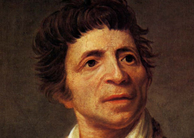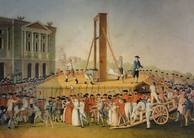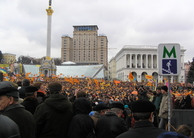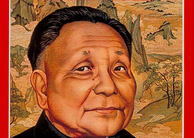|
Evolution (tagged articles)
The keyword Evolution is tagged in the following 49 articles.
2022, Vol. 14 No. 05
Strong linkages between autocrats and the military are often seen as a necessary condition for authoritarian regime survival in the face of uprising. The Arab Spring of 2011 supports this contention: the armed forces in Libya and Syria suppressed... Read Article »
2022, Vol. 14 No. 03
This paper explores the complexity of Whitman’s nationalism and, with reference to Leaves of Grass (1856), examines the apparent paradox between Whitman’s poetry of love and recognition and his imperialistic impulses. This paper draws... Read Article »
2021, Vol. 13 No. 10
Sociobiology is a sub-discipline of biology that aims to examine and explain social behavior in terms of Evolution. It is interdisciplinary in nature, drawing from disciplines including psychology, ethology, anthropology, Evolution, zoology, archaeology... Read Article »
2021, Vol. 13 No. 02
Being a worldwide popular icon, the Argentine Marxist r Evolutionary Ernesto “Che” Guevara has been differently re-appropriated by a variety of movements across the globe; but his reception and symbolization in contemporary China has... Read Article »
2021, Vol. 13 No. 02
On January 1st, 1959, a small band of Cuban rebels shocked the world, overthrowing the American-backed dictator Fulgencio Batista. These rebels were especially known for their guerrilla tactics and their leaders, such as Fidel Castro and Ernesto... Read Article »
2020, Vol. 12 No. 12
Transposable elements (TEs), also referred to as ‘jumping genes’, are sequences of DNA located in the eukaryotic genome that have the ability to mobilize. This functional mobilization allows TEs to insert at random positions throughout... Read Article »
2019, Vol. 11 No. 02
The Haitian R Evolution of 1791 – 1804 was a successful slave rebellion in the French colony of Saint-Domingue that began in the wake of the French R Evolution and went on to influence subsequent liberation movements for decades to come. The... Read Article »
2018, Vol. 10 No. 03
On February 14th, 1965, just one week before he was assassinated, Malcolm X delivered a speech in Detroit. He spoke about his beliefs concerning segregation and civil rights, and made a point of contextualizing the civil rights movement globally... Read Article »
2017, Vol. 7 No. 2
Over the last couple of decades, women-spearheaded social movements have mobilized to leave a lasting impression on civil societies across the globe. The Arab Spring challenged old ideas of oppressive regimes and signaled possibilities for change... Read Article »
2017, Vol. 9 No. 03
In 1793-1794, during the height of the French R Evolution, a deck of playing cards was introduced that radically changed the future of playing cards as well as symbolically portrayed the transformation occurring in France. To most people, a deck... Read Article »
2017, Vol. 9 No. 02
The Peruvian Communist Party (PCP) was founded as the Peruvian Socialist Party in 1928 by José Carlos Mariátegui after his analysis of the “semifeudal” Peruvian economic state, which did not strictly follow Marx’s... Read Article »
2016, Vol. 8 No. 10
In the annals of warfare, what often matters most is the simple question of who won. As a general rule of thumb, the winners are often the ones to have their perceptions and ideology recorded in our collective history, while the other side&rsquo... Read Article »
2016, Vol. 8 No. 10
This essay first explores how Romantic poets William Wordsworth and Percy Shelley invoke the medium of language, specifically poetic language, to opine on the relationship between the reader’s sense experience and freedom. Subsequently, this... Read Article »
2016, Vol. 8 No. 05
There have been plenty of greater r Evolutions in the history of the modern world, and certainly plenty of more successful ones. Yet there has been none which spread more rapidly and widely, running like a bushfire across frontiers, countries and... Read Article »
2016, Vol. 8 No. 01
If the mainspring of popular government in peacetime is virtue, the mainspring of popular government in r Evolution is both virtue and terror: virtue, without which terror is disastrous; terror, without which virtue is powerless. Terror is nothing... Read Article »
2016, Vol. 9 No. 1
A faceless speaker cries out in a crowded square. Around him is an uneven cacophony produced by an undefined group of people. Fires crackle, smoke soars, and skies blacken. These masses rush frantically toward a new world order beckoning lustfully... Read Article »
2015, Vol. 7 No. 10
Headlines are littered with the rhetoric of the powerful. The most present modern crises can ostensibly be reduced to deconstructed, decontextualized and digestible echoes of our world leaders. The Syrian case is not disqualified from this reductionist... Read Article »
2015, Vol. 7 No. 06
The social uprisings in Tunisia and Egypt that unfolded in late 2010 and early 2011 were the catalyst for a political awakening that soon after encompassed the globe. The same logic that allowed for localized social populism to flourish, in these... Read Article »
2015, Vol. 8 No. 2
This paper discusses Allen Buchanan’s proposed shift in intervention found in his essay, “The Ethics of R Evolution and its Implication for the Ethics of Intervention,” and posits that it successfully calls into question other... Read Article »
2015, Vol. 7 No. 04
In a 1920 speech on women’s literature, the cultural critic Zhou Zuoren argued that the value of literature lies in its power to show us new human perspectives and “erase all boundaries and distances” (Zhou 1920), as spoken in... Read Article »
2015, Vol. 7 No. 03
In a previous article I wrote about fine-tuning in the Universe and the empirical evidence for a Grand Designer that can be found within our reality. This argument of course occurs within the context of ongoing fiery debate between theists and secular... Read Article »
2015, Vol. 7 No. 03
When one analyzes recent LGBTQ advocacy, with its rhetoric of liberal normativity and visibility, the gay rights movement has chosen inclusion over r Evolution. Through the intersectionality of dominant forms, namely whiteness, patriarchy, and affluent... Read Article »
2015, Vol. 7 No. 02
What is “r Evolution”? Can the Maidan movement in Ukraine, which led to the ousting of Viktor Yanukovych in February 2014, be called a r Evolution? If so, what are the implications of calling the Maidan movement a r Evolution? While a &... Read Article »
2014, Vol. 6 No. 10
In July 2013, a general strike and mass demonstrations erupted in Tunisia after Mohamed Brahmi, an opposition leader to the democratically elected Islamist Ennahda party, was assassinated. Under public pressure, and with the facilitation of the... Read Article »
2014, Vol. 6 No. 04
In 1914 Russia was a powerful empire. It constituted a fundamental part of the European balance of power. However, years of bloody and costly war changed the nation by bringing to boil all the inequities and discontent built up under the Tsarist... Read Article »
2014, Vol. 6 No. 04
On August 15, 1918, American doughboys landed in Siberia to begin one of the more contentious episodes in U.S.-Soviet relations. The over seven thousand troops of the American Expeditionary Force were to remain for more than eighteen months, playing... Read Article »
2014, Vol. 6 No. 03
The debate between science and religion over the existence of a higher power often leads to little more than a shouting match. We become so emotionally invested in our personal opinions of whether or not God exists that when presented with dissenting... Read Article »
2012, Vol. 4 No. 10
As humans, we are compelled to ask the questions, why do we exist? How do we exist? Even, how can I know that I am using this existence in the correct way and with the right intentions? Even the earliest of the ancient philosophers pondered these... Read Article »
2012, Vol. 4 No. 09
“There are in Europe many good generals, but they see too many things at once; as for me I see only one thing, namely the enemy’s main body. And I try to crush it, confident that secondary matters will settle themselves” - Napoleon... Read Article »
2012, Vol. 5 No. 2
When we interviewed him in 1997, he said a number of things to us, which I think represent kind of an alternative vision of the Middle East that most Muslims have projected. And this vision you know during the course of this interview, which was... Read Article »
2012, Vol. 4 No. 03
In the waking moments of the twenty-first century, political science faces a burgeoning global movement, a crisis in some eyes, and a r Evolution in others. News and media hype over worldwide protests, from the Middle East, to Africa, to the United... Read Article »
2012, Vol. 4 No. 03
Anne-Robert-Jacques Turgot wrote, “Because it takes a long time before we are convinced of their inutility, foundations have sometimes become positively harmful before they have even been suspected of being useless.”[1] One could apply... Read Article »
2012, Vol. 2011/2012 No. 2
During the armed conflict to topple Muammar Gaddafi in Libya, a common question for observers was “who are the Libyan opposition?” Indeed, for one scholar this was the ‘billion dollar question’,1 and, in the United States... Read Article »
2011, Vol. 5 No. 1
Wael Ghonim, a 30-year-old Egyptian who works as an executive for Google, enjoyed a house in the United Arab Emirates with a pool and a nice car. But when news of the Egyptian protests reached him in January 2011, he anonymously started a Facebook... Read Article »
2011, Vol. 3 No. 08
The function of caricature within the public sphere can be described as a subversive weapon.[1] It can be said that caricature as a subversive medium can function as an instigator of social, political and artistic change within a social framework... Read Article »
2011, Vol. 3 No. 06
“The Worst Mistake in the History of the Human Race” is the embodiment of anti-progressivist theory. Jared Diamond challenges the claim “that human history over the past million years has been a long tale of progress,” with... Read Article »
2011, Vol. 3 No. 05
During most of the 16th and 17th centuries, fear of heretics spreading teachings and opinions that contradicted the Bible dominated the Catholic Church. They persecuted scientists who formed theories the Church deemed heretical and forbade people... Read Article »
2011, Vol. 3 No. 03
Many theories regarding bipedalism in early hominids, as well as the advantages provided by bipedalism have arisen and have been debated. The theories are an attempt to reconstruct the past environs in which these early bipeds lived, to make a solid... Read Article »
2011, Vol. 3 No. 01
The insight that Vladimir Nabokov provides into the 1905 Russian R Evolution, in his book Speak, Memory, sometimes merges with the general view--presented, for example, by Nicholas V. Riasanovsky in a more traditional account--but at many other times... Read Article »
2010, Vol. 2 No. 06
"When can we expect a pro-Western, pro-business government in Iran?" asks a US government official in the quasi-fictitious film Syriana. Today, it is highly probable that the same question is still being asked by anxious diplomats the world over... Read Article »
2010, Vol. 2 No. 03
Twitter. Facebook. Digg. MySpace. LinkedIn. The list of social media tools could probably run on for paragraphs, and today’s technology changes so rapidly that many industries, including corporations and news media, can barely keep up. In... Read Article »
2010, Vol. 2 No. 03
Every passing decade, the culture of human beings as a whole has been significantly affected by technology and science. Whether it’s something small, like the invention of automatic doors, or something enormously important, like the invention... Read Article »
2010, Vol. 2 No. 01
Jean-Paul Marat, notorious for his inspiring yet aggressive publications during the French R Evolution, was one of the most influential characters of the late 18th century. Indeed, his radical publications helped induce the violent manner of the... Read Article »
2010, Vol. 2 No. 01
The French R Evolution marks a stain in history, notorious for one of the bloodiest periods in modern civilization. Whether this infamous violence existed at the birth of the R Evolution or only during the Terror has been the topic of debate between... Read Article »
2009, Vol. 1 No. 12
Art Nouveau is the so-called “modern style” developed at the turn of the 19th century. Although it is dated roughly between 1890 and 1910, its first true recognition as an important new movement in art and design occurred at the Universal... Read Article »
2009, Vol. 1 No. 12
What critical Evolutionary events does the span of human progression include? Anthropologists agree that decisive transitions such as sedentism, domestication, the use of language, and the arrival of culture and complex societies are associated... Read Article »
2009, Vol. 1 No. 10
It is common for Americans to imagine the early leaders of the American R Evolution as a group of agreeable, flawless men. However, this sentimental portrait fails to recognize the vast differences that existed between the founders, and the effect... Read Article »
2009, Vol. 2 No. 2
The responsibility of Georgian President Michael Saakashvili for the war with Russia continued to be hotly debated in Georgia, Russia and the world several months after its end.1 Indeed, there are various views about Saakashvili's decision to attack... Read Article »
1997, Vol. 1996/1997 No. 2
On the nineteenth of February Deng Xiaoping, the dominant figure of Chinese politics for 19 years, died and left behind him a booming China, and a nation with many unresolved questions. The British media proclaimed the passing away of ‘... Read Article »
Expedited Article Review
Submit an article and get a decision fast.
If you need a fast decision, INQUIRIES Journal offers expedited processing of your submission for a small fee. Depending on the expedited review option you choose, you can receive a decision in as few as 5-days.
In addition to a shorter review period, the fee supports the journal's continued operation and open-access publishing model. Standard submissions are always free. Submit Now » - Submit an Article to Inquiries Journal -
|

















